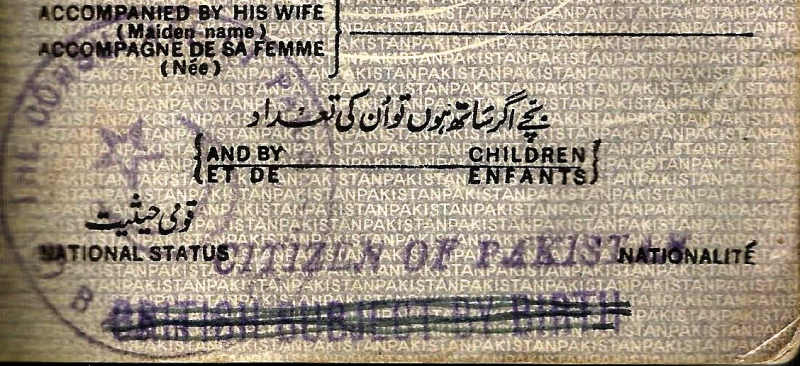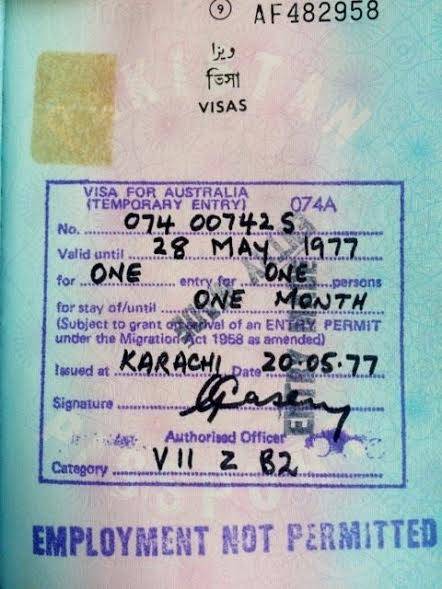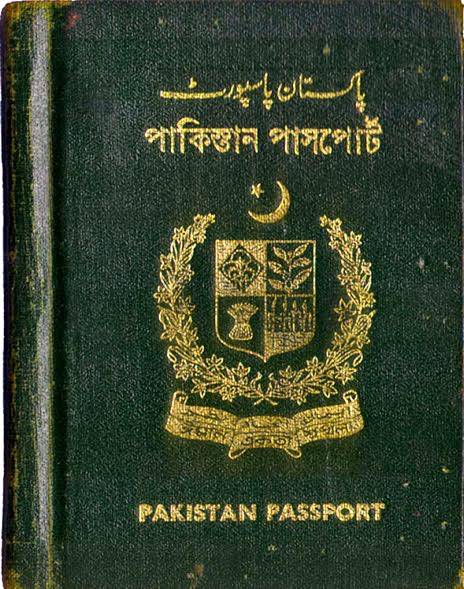Travelling abroad is becoming increasingly difficult for common Pakistanis and the situation is likely to worsen in the time to come. Embassies simply do not issue visas unless there is a strong reason to travel or the person is well travelled and well placed in his home country. Travelling to the first world is simply out of question without a travel history. Even for a brief tourist visa, you have to submit proof of a credible source of income and tax returns, a maintained bank account with a balance sufficient to cover your travelling expenses, a police character certificate, necessary vaccinations and a health certificate and even return air tickets and hotel reservations. Even after fulfilling all these requirements, there is no guaranteeing that the visa would be granted.
Unfortunately, Pakistan doesn’t hold a positive image in the world and we can blame no one but ourselves for it. Thanks to the country’s involvement in Afghan wars and its domestic unrest, there’s a prominent label of a potential terrorist on every young Pakistani. Poverty has driven Pakistanis to illegally travel to Middle East, Europe and America and become a liability to those economies. It is a common perception that Pakistanis are an untrustworthy people. Over the years, they have been frequently involved in illegal activities. Prejudice plays a major part in the situation and Pakistanis with good intentions also bear the brunt, but in the end blame lies with us. Pakistan’s government hasn’t made any efforts to uphold the country’s image internationally and revive its credibility. It has been observed that Pakistan’s government and the country’s diplomatic missions in different countries simply do not mind such ill treatment and humiliation their citizens are unfairly subjected to. Today, a mediocre green passport holder cannot be a dreamer traveler. Such is the sorry state of things.
 /'
/'
Old Pakistani Passport

Citizen of Pakistan, Crossed Stamp of British Subject by Birth
However, things weren’t always the same. Pakistanis have seen good days and enjoyed good reputation and credibility among nations of the world. Travelling across borders wasn’t a difficult thing at all in old days. Before 1965, if a highly anticipated Indian movie wasn’t released in Pakistan, crowds of movie buffs would simply cross the border and watch the movie in cinemas of Amritsar. This happened in the case of epic Mughal-e-Azam in 1960. During cricket matches in Lahore and Amritsar, hundreds of spectators would cross the border. Locals of the two great cities would open their homes and hearts for the guests. A great uncle of mine even vacationed at Srinagar around 1961. After 1965 war, when the border was hardened and Indian movies were banned, people would travel to Kabul for the love of Dilip Kumar and Meena Kumari. Pakistanis used to drive to Europe in their cars and caravans through Middle East and Turkey. Either no visas were needed or were stamped at arrival especially for the Commonwealth nations. All you needed to worry about travelling to Britain was the colossal 1100 rupees ship fare. It was a time when Baghdad and Damascus were the face of the Arab world and Dubai and Kuwait were still underdeveloped desert towns. Afghanistan and Pakistan were safe heavens for hippies all over the world.
In our home, there was always a small black briefcase placed on the top shelf of a cupboard. It was rarely opened. Along with other old documents, it was full of old passports. They were seventeen in number, all stamped and cancelled. I remember whenever that brief case was opened, a strong, authoritative odor of ink and paper would come. Digging through old family papers, I went through contents of the briefcase recently. I realized that these old passports dating from early 1950s to date were a wealth of information, an archive of amazing travels and a glimpse of the good old world.

Purdah Nashin Lady

Visas of Imperial Iraq, Iran and Afghanistan

Visas of Switzerland and Italy
The oldest of these passports was issued on 11th April 1950. It was my father’s first passport. He was 16 years old then and travelling abroad for the first time. Following partition, the family had settled in Kuwait in 1948 which was then a British colony. My father was left behind in Karachi to finishing his schooling. He was now travelling to join the family in Kuwait. I noticed a number of peculiarities and interesting little details on the pages of this sixty-seven-year old document. Its design is exactly the same as the passport of Quaid-e-Azam Muhammad Ali Jinnah so it can be safely assumed that it was the first ever design of a Pakistani passport. It was issued in the name of the Governor General of Pakistan. French is one of the three languages on the passport, others being the official English and the national Urdu. Blanks are filled in beautiful joining handwriting. A black ink pen is used for the purpose. Until the advent of this century, details in a Pakistani passport were always handwritten, but within a few years of newly formed Pakistan, the handwriting of clerks became more and more pathetic. Unlike modern passports, this old one gives the color of eyes, color of hair and a visible distinguishing mark of the holder. Kuwait was a British colony until 1961 so there’s a lot of King George VI stamps on subsequent pages stamped by the consular service at His Majesty’s political agency. One minute detail which is hard to notice is the most precious thing on this passport. At the bottom of the very first page, “Citizen of Pakistan” is stamped in front of the national status and the old stamp of “British Subject by Birth” is crossed.
Another passport belongs to my late grandmother. It was issued on 16th January 1954 at Basra, Iraq which was across the border, just 77 miles from Kuwait. Pakistan’s consulate at Basra dealt with the matters of Pakistanis living in Kuwait at that time. The most astonishing feature of this passport is that the holder being a veiled woman wasn’t required to show her face, instead “Purdah Nashin Lady” was written in block letters in the picture slot. Today, even a state as conservative as Saudi Arabia requires its female citizens to be photographed for passports and other identification. Name of the holder’s underage children and their dates of birth were simply mentioned on her passport. It means that she could take any children of similar ages on a journey with her. Those were much simpler times when man wasn’t as “civilized” as he is today.
Two passports in the black brief case belong to my late grandfather. He was a very social man and loved traveling with his friends. His passports are full of immigration stamps from Iraq and Iran. One shocking thing I noted on his passport was a visa of the Kingdom of Afghanistan, stamped at the Royal Afghan Consulate in Mashad, Iran. By immigration stamps I gather that he visited Kabul in November 1970. Yes, war torn Afghanistan was once a tourist destination.
 '
'
Visas of Germany and former Czechoslovakia

An immigration stamp from Syria

Australian Visa
My father started travelling to Europe in 1958. They were mainly business tours. After getting done with his work he would go on to explore the continent. In 1958, by the time he reached London after touring the entire continent from Istanbul to Dublin, so many visas and immigration stamps had been stamped on his passport that not a single leaf was left unstamped. So, a new passport was issued at Pakistan’s Embassy, London. Visas were either not required at all, especially for the Commonwealth nations, or stamped at arrival. In 1960, he travelled to Germany, bought the latest model car Opel Kapitan and drove through France, England, Ireland and back to Germany. Then he drove all the way to the final tip of Italy, loaded the car in a ferry at the port of Brindisi and sailed through the Ionian Sea to the Greek port of Igoumanitsa. From there he drove all the way through Greece, Turkey, Syria, Iraq and finally reached Kuwait. Business took him to Japan in 1964 and Australia in 1977. These passports are nothing but romantic.
Well, those were the days…






